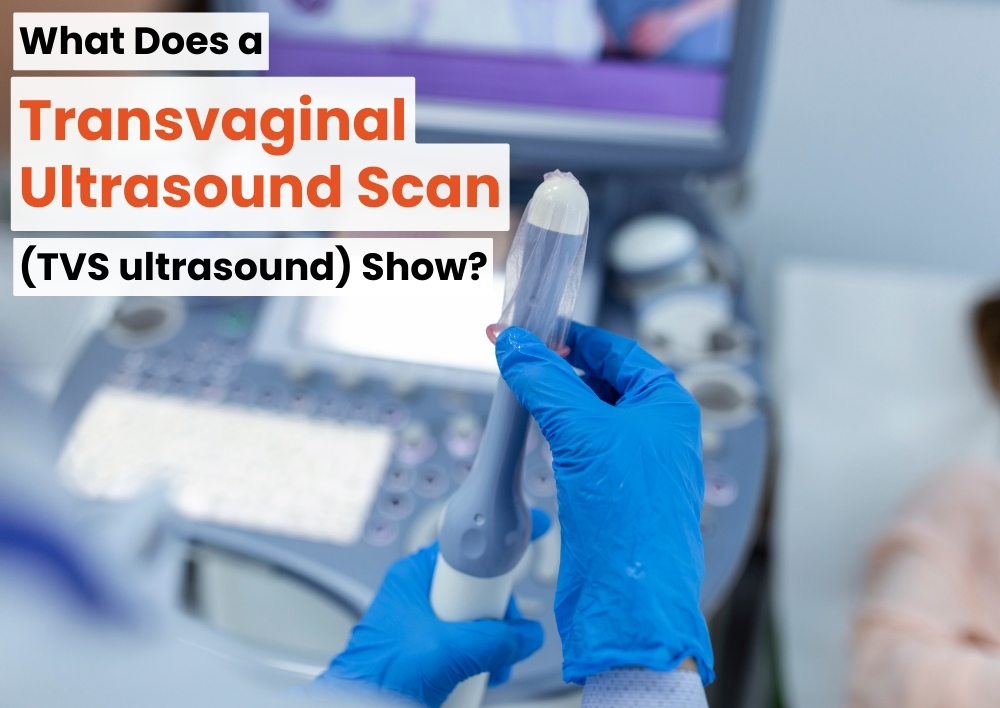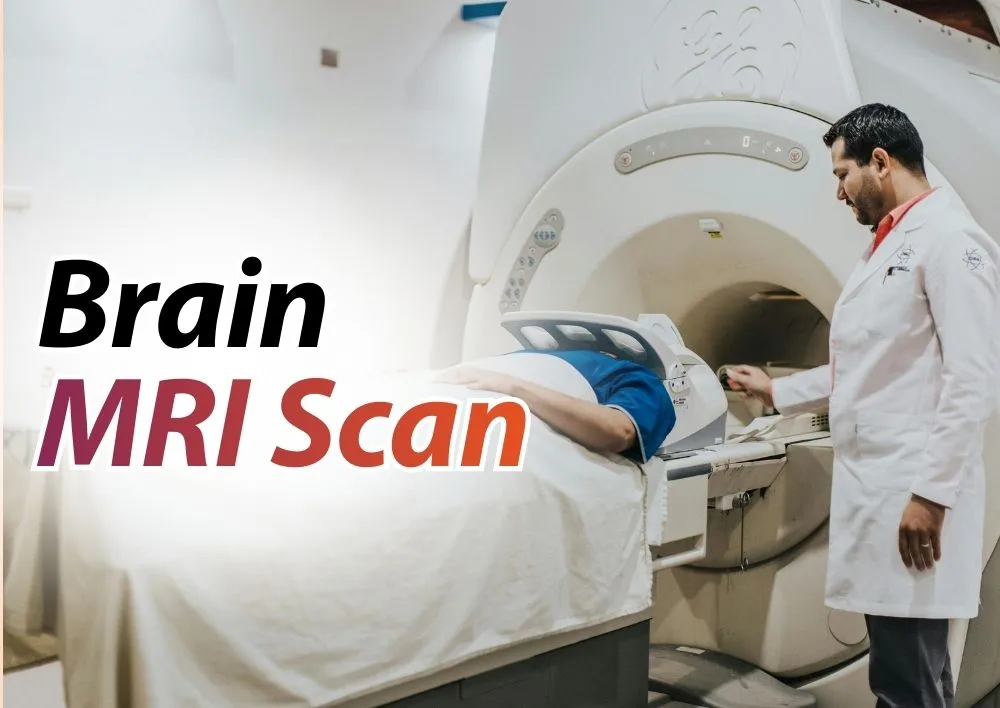What Does a Transvaginal Ultrasound Scan (TVS ultrasound) Show?
When it comes to women's health, one of the most powerful tools is early detection. Imagine viewing your reproductive organs with remarkable clarity, gaining important insights into your health, and catching potential issues long before they become a serious concern. This is exactly what a transvaginal ultrasound offers. It is a window into your reproductive system that can provide answers, reassurance, or early diagnosis. But what exactly does a transvaginal ultrasound show, and why is it so important?
In this blog post, we will look into a TVS ultrasound, how it works, and the wide range of conditions it can detect. Whether you are scheduled for one soon or just interested in knowing more, this blog post will help you understand why this procedure is an important part of women's healthcare.
What is a Transvaginal Ultrasound (TVS Ultrasound)?
According to the leading radiologist in Gurgaon at Miracles Mediclinic, a transvaginal ultrasound (TVS ultrasound) is a minimally invasive imaging procedure in which a specially designed probe is inserted into the vagina to capture detailed images of the pelvic organs, including the uterus, ovaries, cervix, fallopian tubes, and surrounding areas.
Unlike traditional abdominal ultrasounds, which use an external transducer, USG TVS allows for a closer look at the reproductive organs, providing higher-resolution images. This is commonly recommended to help diagnose various conditions or monitor pregnancies in their early stages.
How Does a Transvaginal Ultrasound (TVS Ultrasound) Work?
The procedure is relatively simple and painless. The transducer (probe), which is a thin, wand-like device, is inserted into the vagina after applying a protective sheath and lubricating gel. Once inside, the transducer emits sound waves that bounce off the internal organs and tissues, which are then converted into images on a monitor. These images can reveal a lot about your reproductive health, which brings us to the next question, what exactly does a transvaginal ultrasound show?
What Does a Transvaginal Ultrasound (TVS Ultrasound) Reveal?
A transvaginal ultrasound can help doctors identify various conditions related to the female reproductive system. Here are some conditions detected by Ultrasound TVS:
1. Evaluating Uterine Health: The uterus is one of the main structures evaluated in a transvaginal ultrasound. Through transvaginal ultrasound of uterus, a gynecologist can detect:
-
Uterine Fibroids: These are non-cancerous growths that develop in the uterus, often leading to heavy menstrual bleeding, pelvic pain, or fertility issues. A TVS test can determine the size, location, and number of fibroids, helping guide treatment options.
-
Endometrial Thickness: The endometrium (lining of the uterus) changes throughout the menstrual cycle. A transvaginal ultrasound can measure its thickness, which is important in diagnosing conditions like endometrial hyperplasia or ensuring proper implantation during pregnancy.
-
Polyps or Abnormalities: Uterine polyps, which are small growths on the uterine wall, can be visualized through the USG TVS test. These polyps may cause irregular bleeding and require further investigation.
2. Monitoring Ovarian Health: The ovaries are another important area assessed during a transvaginal ultrasound. Through transvaginal ultrasound, gynecologists look for:
-
Ovarian Cysts: These fluid-filled sacs are relatively common and usually harmless. However, some cysts can cause pain, bloating, or interfere with menstruation. A transvaginal ultrasound helps in detecting and monitoring ovarian cysts to determine whether they are benign or need treatment.
-
Polycystic Ovaries (PCOS): Women with polycystic ovary syndrome may have multiple small cysts in their ovaries. A transvaginal ultrasound can identify these cysts, confirming a diagnosis of PCOS, a common condition that can affect fertility and hormone levels.
-
Tumors or Masses: In some cases, a TVS scan may detect ovarian tumors or growths. Early detection is important for the proper management and treatment of ovarian cancer or other related conditions.
-
Evaluating Pregnancy in Early Stages: One of the most frequent reasons for performing a transvaginal ultrasound is to monitor early pregnancies. This procedure offers necessary insights such as:
-
Confirming Pregnancy: A TVS ultrasound can detect a gestational sac as early as five weeks into pregnancy, confirming that the pregnancy is possible and located in the uterus.
-
Heartbeat Detection: Around six to seven weeks, the embryo’s heartbeat can be seen. This is a key indicator of a healthy pregnancy.
-
Identifying Multiple Pregnancies: If you are carrying twins, triplets, or more, a transvaginal ultrasound is highly accurate in determining the number of fetuses early in the pregnancy.
-
Ectopic Pregnancy: In this condition, the fertilized egg implants outside the uterus, usually in the fallopian tubes. A transvaginal ultrasound can quickly detect ectopic pregnancy, enabling immediate medical intervention.
3. Understanding Causes of Pelvic Pain or Abnormal Bleeding: If you are experiencing unusual pelvic pain or irregular menstrual bleeding, a transvaginal ultrasound may be the first step toward identifying the underlying cause. It can reveal conditions such as:
-
Endometriosis: This condition occurs when tissue similar to the uterus lining grows outside the uterus. TVS USG helps in identifying abnormal tissue growth, helping in its diagnosis and treatment.
-
Pelvic Inflammatory Disease (PID): This infection affects the reproductive organs and can cause severe symptoms such as pelvic pain, fever, and abnormal discharge. A transvaginal ultrasound can show signs of PID, such as inflammation or damage to the fallopian tubes.
4. Diagnosing Uterine and Cervical Abnormalities
-
Uterine Anomalies: Some women are born with structural abnormalities in their uterus, such as a septate uterus. TVS ultrasound can detect these congenital abnormalities, which may affect fertility or pregnancy results.
-
Cervical Health: The cervix, located at the lower end of the uterus, can also be assessed through a transvaginal ultrasound. It can detect issues like cervical insufficiency or cervical masses.
5. Monitoring Fertility Treatments: For women undergoing fertility treatments like in-vitro fertilization (IVF), a USG of TVS plays an important role in tracking progress. It allows fertility specialists to:
-
Monitor Follicle Development: During the IVF process, transvaginal ultrasounds help doctors monitor the size and number of follicles in the ovaries. This is important to decide the optimal time for egg retrieval.
-
Check for Uterine Receptivity: A TVS ultrasound ensures the endometrium is thick enough for embryo implantation during IVF.
6. Diagnosing Miscarriage or Pregnancy Complications: Sadly, not all pregnancies proceed smoothly. In cases of miscarriage or suspected complications, a transvaginal ultrasound (TVS USG) can provide the necessary information. It can:
-
Confirm Miscarriage: If there are concerns about miscarriage, a TVS ultrasound can detect whether the fetus has stopped developing or if there is no heartbeat.
-
Detect Molar Pregnancy: A molar pregnancy occurs when abnormal tissue grows inside the uterus instead of a possible embryo. A transvaginal ultrasound can detect this rare condition.
Is a Transvaginal Ultrasound (TVS Ultrasound) Safe?
Yes! A transvaginal ultrasound is safe for most women, including those who are pregnant. Since it uses sound waves, not radiation, there’s no exposure to harmful materials. The procedure of TVS USG is also non-invasive, though it can cause some discomfort due to the probe insertion. However, the discomfort is usually minimal, and the benefits far outweigh any temporary unease.
Preparing for a Transvaginal Ultrasound (TVS Ultrasound)
If you are scheduled for a transvaginal ultrasound, there’s usually little preparation involved. In some cases, you may be asked to empty your bladder before the scan to get clearer images of the pelvic organs. The procedure itself typically lasts around 10-15 minutes, and results are usually discussed with your doctor immediately or during a follow-up appointment.
When Should You Consider a Transvaginal Ultrasound(TVS Ultrasound)?
Your gynecologist may recommend a transvaginal ultrasound in several methods, such as:
-
Unexplained pelvic pain
-
Irregular menstrual bleeding
-
Difficulty conceiving
-
Undergoing fertility treatments
-
Early pregnancy monitoring
-
Suspected miscarriage
-
Postmenopausal bleeding
In some cases, like if you have a history of reproductive health issues or are experiencing symptoms that require further investigation, TVS ultrasound is a part of a routine check-up.
Conclusion:
The transvaginal ultrasound is more than just a diagnostic test; it is a window into your reproductive organs' health. Whether you are monitoring an early pregnancy, investigating unexplained symptoms, or undergoing fertility treatments, this procedure offers important insights. It can reveal everything from fibroids to cysts, from pregnancy complications to pelvic inflammatory disease, giving your doctor a clear path toward your treatment or care plan.
If you’ve been advised to get a TVS Scan, don’t hesitate, it’s a quick, safe, and effective way to stay informed about your reproductive health. Take control of your reproductive health today! Book your transvaginal ultrasound near you at Miracles Mediclinic for expert care and early detection.







_Causes,_Symptoms_Effective_Management_Tips.webp)







Was the information useful?
0 0